Ukraine: Putin’s Lebensraum
by Brian Czech
People tend to think of Russia as a wide-open country with plenty of space for economic growth. While it may take days to ride the trans-Siberian railway, any notion of an empty Russia is as antiquated as Dr. Zhivago. European Russia, especially, has been cultivated, harvested, logged, mined, fished, and “developed” to the gills with roads, bridges, railways, power lines, pipelines, grids, towers, cables, dams, and canals connecting every industry under the sun to thousands of towns and cities plus tens of thousands of villages. Pollution problems abound. Such overdevelopment is due in no small part to the Cold War aspirations of the Soviet Union, which tried to defeat the USA on the scoreboard of GDP.
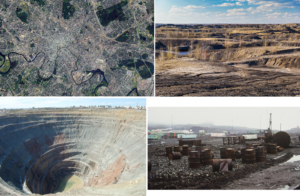
Moscow (upper left) and some of its ecological toeprints. (Clockwise from upper left: CC BY-SA 4.0, Axelspace Corporation; CC BY 3.0, Senin Roman; CC BY-SA 3.0, Loranchet; CC BY-NC-SA 3.0, Jean-Daniel Paris)
Given the overdevelopment of Russia, the practical motives of Putin vis-à-vis Ukraine surely include the rich soils (“chernozem”) and grain-belt climate of the steppes comprising Russia’s western doorstep. With the breadbasket landscape of Ukraine and a capitalist mode of production, Russia would become a bona fide superpower on the order of the Soviet Union; Putin’s dream come true.
Those forementioned villages, however, are dying out as fast as small farms in the American Midwest, and for the same basic reason. They’re being pushed out, literally and economically, by industrial agricultural operations, as Russia’s grain exports have exploded to a level approximately 20 times over the past two decades. The agricultural community knows this and intelligence agencies know it, but the general public (especially in the USA) remains oblivious to it, because the mainstream media consistently overlooks it.
This is not to imply that Ukrainian agricultural potential is the #1 reason Putin wants Ukraine, whether in whole or under control. NATO geopolitics gets the most attention, as it probably should, along with Putin’s documented desire for a return to Soviet-era Russian control in Eastern Europe. Yet it would be naïve to think Ukraine’s world-class agricultural productivity and potential is of no concern to Putin, regardless of how much agriculture is already on Russian soil. That would be to overlook history and the role of agriculture in the geopolitical affairs of Europe.
Lebensraum: The Underused World War II Metaphor
Usually when an autocrat rears his ugly head, the overused metaphor of Hitler is trotted out, often as a fallacious reductio ad Hitlerum. Vladimir Putin gets his share of comparison. However legitimate the personal parallels may be between Putin and Hitler (especially a searing sense of national humiliation), the focus here is on the most overlooked geopolitical parallel: that between Nazi Germany and today’s Russia.
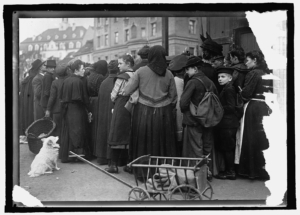
Germans in bread lines, circa 1920.
By the late 1930s, the Third Reich was running out of space for the economic growth it needed not only for World War I reparations, but for building a modern war machine. It wasn’t space for military industrial activity that was in short supply; rather, it was space for the civilian population to live and prosper in. What the Fatherland needed was more room for the children: more living room for Germans, more “lebensraum.” And the type of lebensraum it especially needed—for the sake of prospering economically and socially—was agricultural lebensraum.
History students learn about the hyperinflation that fanned the flames of Hitler’s rhetoric and doomed the Weimar Republic. Monetary and fiscal policies played a role—and certainly bank failures—but those iconic images of Germans waiting in lines for single loaves of bread reflect the supply side, too. Bread was scarce because grain (other than rye) was scarce; grain was scarce because, per capita, agricultural lebensraum was scarce. As Elizabeth Collingham stated in an interview for the Herald, “Food and agricultural concerns played a fundamental role not only in the origins of World War II but in the ongoing strategies and tactics of the German Reich.”
If you’re wondering who Elizabeth Collingham is, it will be my pleasure to introduce her.
The Road to War Starts with Appetite
A particular take on limits to growth, along the lines of Jared Diamond’s, for example, will lead you to interpret world affairs in terms of the waxing and waning of agricultural surplus. In 2014, I roughly interpreted the doctrine of Lebensraum through such a lens, including with a tenuous connection to Putin and Ukraine. The unfolding events in Ukraine lead to a renewed interest in this connection, and bring us naturally to the history writings of “Lizzie” Collingham.
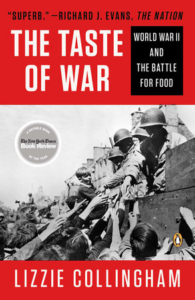
The Taste of War: A history book with growing relevance. (Penguin Random House)
Collingham’s scholarship has been overlooked, most notably The Taste of War: World War II and the Battle for Food. Not that I’m the authority on what is and what’s not overlooked; after all, Taste of War was a New York Times “notable book.” Yet if it wasn’t overlooked, it must have been “underlooked,” because we see next to nothing in the mainstream media about Ukraine’s agricultural productivity as a motive for Putin invading far further than the “smart” money bet (that is, no further than Donbas and Crimea).
Evidently the media reflects the limitations of geopolitical think tanks such as The Atlantic Council, who could benefit from a little less neoclassical economics and a little more steady-state economics, plus a reading of Collingham. Steady-state economics provides the theoretical background on limits to growth and the need for a steady state economy as the sustainable alternative to growth. The key implication for national security and international stability is that the aggressive pursuit of economic growth inevitably leads to war.
In Taste of War, Collingham builds upon that theoretical background (not intentionally, but effectively) with compelling empirical evidence for the primacy of agricultural surplus in economic welfare, as extended to national security concerns. She details the nexus between food and strategy in domestic policy and in military operations. For the Nazis, starving hundreds of thousands of “useless eaters” in Europe—not just in concentration camps but out on the lebensraum—was a conscious decision pursuant to a detailed strategy, the ominously named “Hungerplan.” The Hunger Plan, overseen by Herbert Backe, the Nazi’s Minister of Food, was designed especially to starve enemy forces while feeding their own along the front.
When I asked Collingham what she thought of the parallels to Putin’s invasion of Ukraine, she was unequivocal. “People of the West are amazingly unaware of the importance of Ukraine to Russia,” she opined, “not only as a strategic location on the map of Europe but as the main competitor and potential contributor to Russian grain production.” I’m guessing that applies especially to Americans, not only because they’re the furthest west, but because their economic education is most dominated by neoclassical economics, which seems blind to limits to growth and the primacy of agricultural production in maintaining national and global economies.
Collingham didn’t go so far as to label Putin’s invasion the second coming of Lebensraum doctrine, yet perhaps the biggest difference is the cardinal direction. It’s a type of lebensraum doctrine alright, coming from the east instead of the west. While Russia may not have a Nazi-style Hungerplan, Russia does have its own legacy of starving Ukrainians, when they were part of the Soviet Union no less.
You Can’t Eat Gas
The conventional assumption that Putin cares little about Ukraine grain stems in part from the stranglehold he has on the European energy sector. The notion seems to be, “Why would Putin care about farm commodities when he holds the keys to the gas pumps?” Unfortunately, this ignores Putin’s documented concern about food production.
Furthermore, from a theoretical and strategic standpoint, Putin the Practical must have a sense that the energy sector is a bit like the information sector: it’s worthless unto itself. To put this point most profoundly, “You can’t eat gas.” If the gas and oil isn’t fueling the other economic sectors—starting with the agricultural sector—what’s it good for? Lubricating horse-drawn carts?
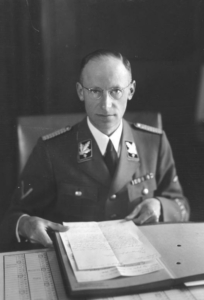
Overlooked evil: Herbert Backe, overseer of der Hungerplan. (CC BY-SA 3.0 DE, Deutsches Bundesarchiv)
Nor is it good for fueling heavy manufacturing, light manufacturing, or a power grid for the service sectors, unless the agricultural sector is fueled first. No food, no activity; little food, little activity. In fact, it takes a lot of food to free up enough labor into a full-fledged, well-developed economy. It takes, in other words, a well-oiled (so to speak) agricultural sector.
Agricultural surplus allows for the other sectors to develop and “authorizes” the exchanging of money. In that very real sense, agricultural surplus generates all the money in the world. That’s the trophic theory of money in a nutshell. It helps us understand Lenin’s statement that “grain is the currency of currencies.” It also helps us understand why the obsession of Hitler with Russian oil fields in the Caucasus wasn’t all about fueling tanks for the Wehrmacht and planes for the Luftwaffe.
As Collingham describes in Taste of War, the Nazis needed fuel for farm tractors and for trucks to transport grain. The Hunger Plan was on a fast track, with German civilians and soldiers taking over the Polish and Ukrainian farms and fields. Backe and his fellow bureaucrats had calculated that this was the only way the Wehrmacht could prevail in Operation Barbarossa (the German invasion of the Soviet Union). Not only would the Nazis have to feed themselves, they’d have to choke off the Red Army’s grain supplies.
Evidently the proportion of Caucasus petroleum going to Nazi agriculture was slated to be roughly 30-40 percent. While the Wehrmacht captured some Caucasus areas and oilfields, it was under constant attack by Red Army forces. It never secured them sufficiently to follow through with transporting oil back to the front further north, much less farms to the northwest. The Soviet pushback in the Caucasus was as pivotal a point as any other in World War II.
Does anyone think Putin, as calculating as he is, doesn’t understand the durable, double-barreled power of oil and agriculture? Does anyone still think Putin, as ruthless as he is, won’t take as much of Ukraine as he can capture? His infamous spite may extend even further back than the collapse of the Soviet Union; he could harbor a defensive if not vindictive attitude over the catastrophic Russian losses from Operation Barbarossa.
Putin’s motives aside, one thing is especially relevant for the intelligence community, statesmen, and diplomats: At this point in history, war is inevitable as long as nations are determined to grow their economies. Economic growth starts at the trophic base; that is, with agricultural surplus. In other words, a bigger economy requires more lebensraum.
What does that make peace, then, in economic terms?
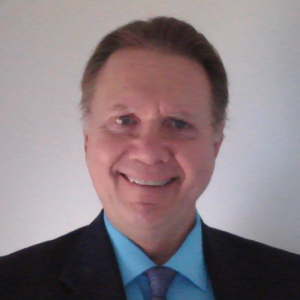 Brian Czech is CASSE’s executive director.
Brian Czech is CASSE’s executive director.
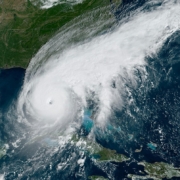
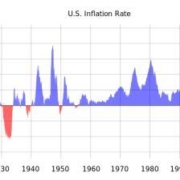

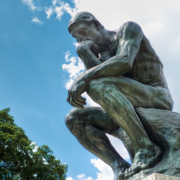
 CC BY-NC 2.0, Creator: Stuart Rankin
CC BY-NC 2.0, Creator: Stuart Rankin
I understand, the solution is to leave Ukraine to US Americans and Western Europeans to develop it’s farmland. It’s true that you can not eat gas but without gas (fertilizer) and oil (transport) you can not develop any farmland on a scale necessary for industrial civilization. Remember Liebig’s law? In this case it’s the energy that’s weakest link, not farmland. No matter how much you have rich soil, without energy there will be no food. Ukraine doesn’t have enough horses, right? They must us IC engines but only Russia can provide necessary oil. Isn’t it just logical that Ukraine’s farmland should be developed using Russian oil and gas? Or is it better to use oil and gas from faraway US? Let’s face it, US attempt to sabotage Russia using Ukraine failed. Five billion dollars invested in Nazi regime in Kiev was not enough. But one trillion worthless dollars printed using QE will probably do the job.
What are you talking about? There is no Nazi régime in Kyiv! STOP SPREADING RUSSIAN PROPAGANDA!
Thank you for the in-depth analysis, including the historical references and the connection with “bigger economy”. The lebensraum parallel is quite convincing. It would seem that anti-war movements and steady state should be intrinsic allies.
Thank you Mark. I wholeheartedly agree with the natural connection of anti-war and steady-state movements. We’re getting there, little by little. Several peace-focused organizations have endorsed the CASSE position on economic growth, for example, and as you can see, we do our best to advance “steady statesmanship” in international diplomacy. But we have such a long way to go, as Manon Gartside describes below.
An excellent thought provoking read. Putins resource grab, seen as securing growth potential, a means to deliver future security for Russia. Invade and secure some growing room for the empire – possibly part of the thinking.
In the mid 90s, previously improving relations with Yeltsins’ increasingly open Russia deteriorated – over a spat concerning Clinton influenced NATO. The old cold war enemy NATO, were taking sides, irritating Yeltsin, bombing in Yugoslavia.
At that time, annoyed with NATO, the moderate democratic Yeltsin promoted Putin an ‘Old Russian’ traditionalist, two men with a disdain for NATO.
Putin has since continuously eroded the democratic progress of Gorbachev and Yeltsin – moving back to autocratic power, with a free market – so long as the assets are controlled by his colleagues.
Russian growth and security would have been so much better, more confidant, if trust had been successfully nurtured at that time, we could have had less NATO, more east west trust, seeing ‘stronger together’ as increased security for all. That horse has sadly bolted.
Unfortunately instead of ‘stronger together’ we have arrived at ‘us and them’.
Alternative to economically growing within a shared single globalized space, protectionism is a theme. There is friction, growing east clashes with the growing west along the (despised by traditional Russia) NATO dividing line.
The growth economic model, as Steady-Staters are well aware, is not delivering best benefit for mankind.
At international level we’re at war over resources. At the personal level, wealth inequality removes so much human opportunity to grow and contribute.
What are the current best ideas for alternative paradigms that can quickly take hold and improve things?
Thank you Conor. That is a relevant, valuable supplement to the article.
Very sober analysis Brian. Like all species, humans have an ecological niche and that niche has a carrying capacity. For the last 200 years, fossil fuels have temporarily increased the carrying capacity of our niche. For 200 years before that, it was the energy of slaves in the Americas that created food (and fibre, minerals) surpluses to export to Europe. Europe has been bumping against the limits of their ecological niche for centuries causing famines. North America imported some of Europe’s surplus population and exported some of its food surplus. Fossil fuel-caused global warming is going to put an end to that surplus once farmland turns to dust. 100 years of intensive ploughing caused soil erosion (using diesel) makes it worse. This capitalist mode of production is now everywhere (Russia, China) because it creates surplus for export/foreign exchange. At this point surplus food energy vs fossil fuel energy is a chicken or egg dilemma. The agricultural system and energy/industrial system are the drivers of I=P*A*T and the impacts are disturbing Earth’s systems. So the only way to deal with this predicament is to scale down techno-industrial civilization with a planned and managed, fair and participatory, democratic and inclusive, non-violent and non-alienating, ecological and convivial degrowth, without fossil fuels nor slavery but more human labour because this is better than collapse from famine, genocide, war and disease. A reduction in affluence and technology starting with world’s richest 10%, limits on wealth accumulation of individuals and businesses, ensure basic needs, leave half the Earth to non-human species. Bring the world’s population down to 1 or 1.5 billion by 2150 with birth rates below replacement in every country. We need to figure out how to live frugal, simple, slow, low-tech, no debt, no-waste, with short commutes, infrequent travel, in communities that make this easy, affordable and enjoyable with high social trust. Easy work right?
Thank you Manon for posting such a high-quality comment. You packed a lot in there, and you’re right; at this point we need more than a simple cessation of the GDP obsession. We need degrowth toward a steady state economy.
Just one thing I must say here: humans do not have “an ecological niche” as you said. We are very adaptable, mostly because of our ability to control fire and make clothing and other equipment to enable us to live in many ecological communities.
Brian, thanks for sharing a summary of Lizzie Collingham’s book, a Taste of War. I’ve just taken a look at the table of contents. It’s quite extensive. It fits well with the BBC’s 8-part series called the Wartime Farm. It explains how food rationing worked in Britain.
Below is an article that also supports Brian’s argument that food is contributing factor in Vladimir Putin’s thinking.
Pasta and Sugar, Not Navalny, Are Putin’s Main Worries
February 9, 2021, EVGENY FINKEL, JANETTA AZARIEVA and YITZHAK BRUDNY
https://www.ponarseurasia.org/pasta-and-sugar-not-navalny-are-putins-main-worries/
Oh, if it’s by three Jewish authors paid by US university, it must be objective and impartial about Russia.
I wonder, Ivan, if you have any idea how ugly that sounds.
I don’t exactly earn legions of friends and influence masses of people, but I can’t imagine you’re effective whatsoever.
US Americans and western Europeans are asking for trouble, and if you keep asking for it long enough, you’ll probably get it.
You do yourself no favours with this ideologically narrow view of the resource vectors motivating this war. The arable land in Eastern Ukraine may well be a consideration,. However you completely overlook the much greater factor of the Empire’s pressing need to exploit and thereby financialise Russia’s vast resource base. The ‘West’ needs this resource base to help extend the horizon of its zombie financial system (+MIC), and thus provide palliative care to the West’s current matrix of plutocratic power and entitlement.
From that avaricious and predatory realm of pressure arises an existential threat to the very being of Russia as an entity. Putin and his senior staffers have talked about this unacceptable threat at length, both in detail and over time. Didn’t you listen to any of that? Couldn’t you connect these cogently iterated concerns to the underlying economic purposes motivating the West’s objectionably threatening behaviour? Haven’t you read anything at all recently by Michael Hudson? If not, why not?
Yes, it is very much about growth, but you’re pointing to a small piglet whilst avoiding the herd of elephants in the room.
Fair enough, Greg. The thing is, we can’t cover every angle in a single blog article. If you thumb through the pages of the Herald, or my books—especially Shoveling Fuel for a Runaway Train—I think you’ll find that my focus has long been the profligate consumption of the West and in particular the USA. That and the corruption of American, neoclassical economics.
With the current offering, my focus wasn’t on attacking Russia, but rather highlighting the primacy of the agricultural base in economic growth and in geopolitical strategy. Such a focus wasn’t merely for informative purposes but, rather, for nudging readers away from neoclassical notions of perpetual growth and toward an ideal of steady statesmanship in international diplomacy.
Hi Brian
I appreciate the focal limitations applicable to a single article. My concern is that a very fine thread of that resource driver is being examined whilst leaving its main fabric out of sight in the dirty laundry basket. Russia’s trigger and over-riding purpose to enter Ukraine is not the wheat fields, although they no doubt figure within the larger picture of things. The trigger specific to current events is Russia’s inability to tolerate the existentially threatening conditions imposed upon it by the growth-driven imperatives of the US Imperial State. Ukraine is a significant part of these intolerable conditions and the current focal point of Russia’s remedial response. At this potentially catastrophic extremity of global events it is a matter of survival that we forge explanatory narratives in accordance with the best of all available evidence, and not find bits of evidence to support favoured narratives.
This article does a good job of summarise the situation regarding Russia’s sense of threat and the identity and predatory nature of that threat.
https://www.indianpunchline.com/india-shouldnt-miss-world-war-pointer/
In a nutshell the Western neo-liberal growth beast is manoeuvring for access to new feeding pastures across Russia’s fat landscape. Russia well knows this beast and knows it would not survive the feasting frenzy. It has already once nearly died from it in the ’90’s.
With all due respect to Brian Czech, who’s work on steady state economics I’ve consistently appreciated, I feel that this article is a misguided attempt to caste Putin’s invasion of Ukraine as a quest for resources. NATO expansionism has gone on for years, threatening Russia’s security. It is verifiable that the U.S. sponsored neo-Nazi actors in Ukraine to assist in installing a pro-Western puppet government. The U.S. corporate-military-industrial complex and their desire for a ever-expanding war market is arguably the biggest driver of the events in Ukraine. Consider consulting Consortium News for scholarly, respected alternative views to our corporate-controlled news media. Also consider checking out Glenn Greenwald’s excellent analyses, including his recent podcast on The War in Ukraine: https://greenwald.substack.com/p/the-war-in-ukraine?utm_source=url
PRACTICAL is indeed very appropriate definition within the context of Brian’s previous article. And this article clearly shows that’s historically it’s all very similar to Hitler plans and can lead finally to humankind extinction. And today Putin the KILLER and Putin the AGGRESSOR flooded world media.
But it is unjustified that definition Putin the DESTROYER of ENVIRONMENT remains beyond the public attention. We mean that for Ukraine a no-fly zone is badly needed, and not only to avoid genocide and reduce the flow of refugees, but also to protect Europe’s entire natural environment from possible environmental disasters.
Intense fighting is taking place this time, not in the deserts of Iraq, but in an area oversaturated with nuclear power plants, chemical and energy facilities, and Europe’s largest waterworks.
And they are led by the terrorist state that demonstrates unprecedented treachery, cruelty, hypocrisy and irresponsibility. The Patriot and Iron Dome complexes supplied together with qualified operators and deployed in most critical locations, will provide environmental security for Ukraine, Europe and the world.
After all, the world remembers and still suffers the consequences of the accident at only one unit of the Chernobyl nuclear power plant, which became the largest man-made disaster in history. By the way, that plant is now in hands of terrorists.
Yuriy Tunytsya, Ihor Soloviy, Svyatoslav Krayevskiy
Thank you Yuriy, Ihor, and Svyatoslav for adding this important point. With the exception of some Chernobyl coverage, the profound environmental perils of warfare forced by Putin are just as overlooked by the mainstream media as the primacy of Ukraine’s agricultural productivity. Readers have to go searching for this type of information, and only then they’ll find examples such as “War has been an environmental disaster for Ukraine,” published at the Bulletin of the Atomic Scientists: https://thebulletin.org/2022/02/war-has-been-an-environmental-disaster-for-ukraine/
The contamination of Ukraine—or anywhere on Earth—with nuclear fallout, forever chemicals, oil spills and such should be classified as a type of war crime; in particular a crime against humanity. Unfortunately, war crimes get prosecuted only after committed. Your suggestion of a no-fly zone on environmental grounds is exactly the kind of pro-active thinking we need at the forefront of 21st century international diplomacy.
DW.com did a good article on the Ukraine nuclear reactor(s) predicament – looming disaster of epic proportions – on March 3rd. Some Ukraine operators requested international protections of some sort which to me infers military defense of reactors & highest level radioactive waste storage.
Thank you Brian. A complementary article that makes the case for the significance of global food supply chains and their potential to fuel conflict.
https://irconsilium.com/ukraine-is-not-enough-just-the-beginning-of-russias-assault-on-the-world/
Two wrongs don’t make a right. The fact that the West has a political-economy that allows people to accumulate billions, loots its own citizens, enables corruption, has engaged in regime change and political assassination abroad for the purpose of securing resources (with military industries profiting) doesn’t make that acceptable in Russia, China or anywhere else. Russia is not a socialist country with a benevolent president.
No society can be democratic nor live within Nature’s limits and be an empire. Or create billionaires and corporate monopolies. Even Nordic countries have them. Ikea is not exactly a workers’ co-op nor a forest protector. Alas, democracy, anti-corruption and sustainability are a sliding scale.
Everyone here understands that the West was triumphantly gleeful when the Warsaw Pact countries declared independence and especially so when the USSR broke up. Everyone here on this blog is appalled that the West enabled the looting of the USSR/Russia’s public assets and their financial transfer to the West, impoverishing the Russian people. Oligarchs only want money so are easier to deal with than reformers (Allende, Lumumba, Mosaddegh, Sukarno, Ho, Gorbachev, etc.). Like many ordinary people in the West, I had hoped for real reform in Russia, from the bottom up, for democratic socialism. I doubt Marx or Luxembourg would have recognized the USSR as socialist (China even less) but it was an example of an alternative to Western capitalism and it did provide its citizens with basic goods, services, culture, arts and national parks. That example gave us here in the West some breathing room, workers here some leverage. But war destroyed the chance for socialism to flourish. Had it not had to fight an Allied invasion and 7-year long civil war as soon as Russia pulled out of WW1, it might have turned out better. Unfortunately, WW1 ruined the best chance we had, all of us, everywhere, together, to create a better world. We can still do the right thing.
Right now, the only strategy wanted war criminal Putin utilizes against Ukraine is to keep inflicting massive civilian casualties, terror and fear, destroying Ukrainian civil infrastructure and keep attacking these civilian targets to inflict more terror and leave the Ukrainians without electricity or water supply. It feels like Putin is utilizing the usual Russian military playbook he used in Georgia, Chechnya, Crimea and Syria: win the war by spilling more civilian blood, inflict more civilian terror and keep committing more war crimes to further inflict more fear and terror.
Hopefully the NATO members, the US especially will be able to throw in more weaponry, especially the F-16 fighter jets, hopefully higher range MGM-140 ATACMS rockets, counter rocket C-RAM weapons systems to better fight the Iranian drones and more for air defenses to counter the Iranian drones and ballistic missiles. The advanced Western fighter jets will be a vital tool to win this war, without these fighters the we are looking into a more prolonged war, that might last few more years. The F-16 fighter jets can provide important offensive capabilities and support the ground force efforts.